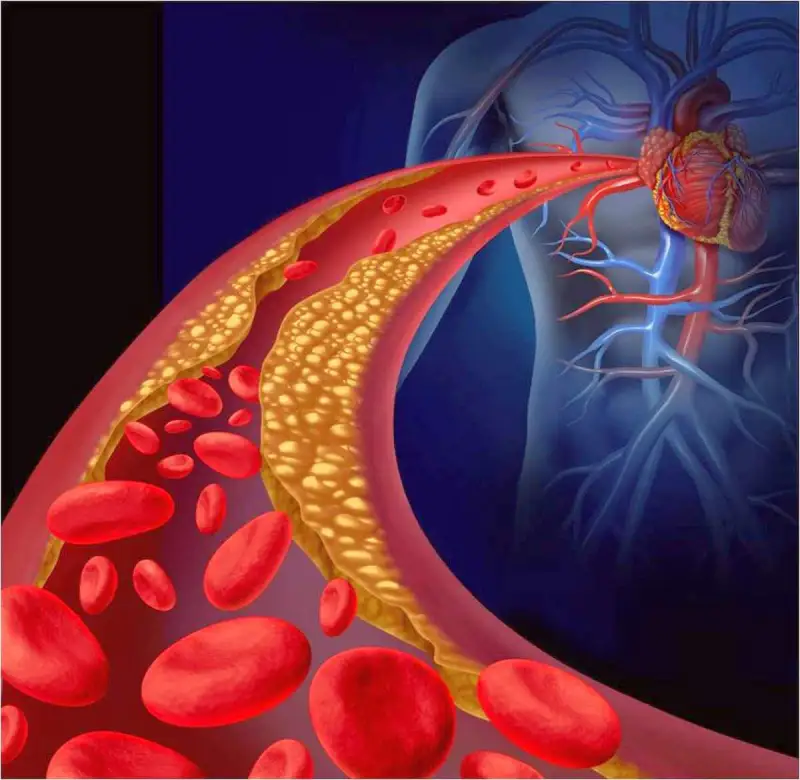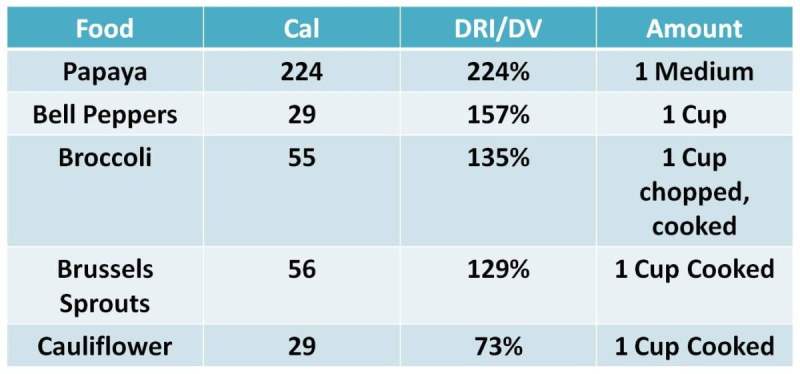Hardening of the arteries or atherosclerosis should not be taken for granted, and this is why I will show you how to reverse it to gain your normal heart health back. Keep reading to find out more.
In this article:
- Atherosclerosis May Not Be About Too Much Cholesterol
- A Crack or Pre-Existing Lesion Happens Before Atherosclerosis
- The Causes of Lesions in the Arteries
- What Are the Symptoms of Hardening of the Arteries?
- What Are the Risk Factors of Hardening of the Arteries?
- What to Consume When on Coumadin
What You Can Do to Reverse Hardening of the Arteries
Atherosclerosis May Not Be About Too Much Cholesterol
Today, I’m going to tell you how to reverse atherosclerosis, which is a hardening of the arteries. Typically, people have the idea that atherosclerosis comes from consuming too much cholesterol, but this is simply not true. So, let’s try to dissect what happens. Here’s an artery:
A Crack or Pre-Existing Lesion Happens Before Atherosclerosis

There’s always some kind of a pre-existing lesion or crack in the artery before the whole chain of events occurs that causes atherosclerosis. What happens when there is a development of atherosclerosis is cholesterol comes in as a kind of band-aid to heal the bleeding crack in your arteries. Then, cholesterol and calcium work together to form what is commonly known as a plaque formation.
The Causes of Lesions in the Arteries
So, what causes lesions in the arteries in the first place? Let me discuss what those are.
1. A Lack of Vitamin C

What initially causes the lesion or the crack in an artery is usually a lack of Vitamin C. This happens when you are not eating enough vegetables. I’m not talking about synthetic Vitamin C. I’m talking about Vitamin C in its whole complex, which has a factor. It’s a type of copper in its enzyme form called tyrosinase, which basically helps you form collagen.
Without that factor, you’ll get a lot of cracks and problems in the vascular system. In fact, you’ll suffer a complete loss of collagen, and then everything becomes overly rigid and hard. So, you need Vitamin C from vegetables every day. Here’s a list of foods highest in Vitamin C with their percentage of the RDA.
Hint: If you can work up to having one cup of bell peppers into a salad, and/or chopping up into scrambled eggs at breakfast, or trying the pepper omelet with some cheese at breakfast and later a salad with a cup of steamed, chopped broccoli added to it, you can supply your body with your daily requirement of Vitamin C.
A cup of bell peppers, in fact, has 157% of your daily requirement for vitamin C at only 29 calories per cup. One cup of cooked broccoli has 135% at only 55 calories!
Top Five Foods Highest in Vitamin C

2. High Fat Storing Hormone

High Fat Storing Hormone, of course, comes from eating too much sugar and/or refined carbohydrates. These types of foods cause inflammation and micro-hemorrhaging in the arteries. Here’s how it happens.
We have a lesion, say, in the arteries, so the body forms a little plaque build-up or deposit to try to protect it with cholesterol. Then, we’ve got this combination of cholesterol and calcium plaguing in the arteries. What happens is the plaguing area starts getting bigger and bigger and creates a clogging of the artery. Cholesterol goes way up with high Fat Storing Hormone, by the way. In fact, unless you have a genetic predisposition problem with cholesterol, which is very rare, I will bet anything this cholesterol in the arteries comes from a problem with excessive Fat Storing Hormone.
If you would merely cut out all the carbs, such as refined carbs, sugar, and alcohol, your cholesterol level will come down in one month.
3. Taking Too Much Calcium in the Wrong Form
Another thing that can cause calcium build-up is taking too much calcium in the wrong form, especially if you’re taking calcium carbonate–because that’s limestone, sheer cement. We wonder why we have clogged arteries, right? What Vitamin D does is to help you absorb calcium in the gut by 20 times, not by 20% but by 20 times.
Calcium Carbonate Definition: A calcium salt that serves as a fertilizer, food-firming agent, food coloring, and antacid.
So, you absorb all this calcium, and the blood begins virtually filling up with it, which causes hypercalcemia, an overabundance of calcium in the blood. This combination of Vitamin D with calcium is hyper-fueling the arteries with calcium, especially if you don’t have enough magnesium present since magnesium helps to buffer calcium. For you to have Vitamin D work correctly with calcium, you need another vitamin called Vitamin K2.
Now, Vitamin K2, I predict, will probably become very mainstream and popular in the near future because it basically removes calcium from the soft tissues of the body and cleans up calcification on the arteries. It basically prevents your arteries from turning into bone and stone. It makes your arteries more elastic and is good for blood pressure. K2 is a fat-soluble vitamin, so it’s in all the fatty foods the doctors have been telling you to avoid. You can find K2 in these foods:
- Cheese
- Egg yolk
- Fatty meat from grass-fed animals
- Soy product called natto
Mainly, it’s in fats.
What Are the Symptoms of Hardening of the Arteries?

In most cases, atherosclerosis symptoms do not appear until there is already a blockage in the arteries. The common symptoms of atherosclerosis you may experience are as follows:
- Muscle weakness in the leg area due to a lack of blood circulation
- Confusion (This happens because the blockage affects the blood circulation in the brain.)
- Fatigue
- Shortness of breath
- Chest pain
Aside from the symptoms of hardening of the arteries, it’s also crucial to know the symptoms of a stroke and heart attack. These conditions can be the results of atherosclerosis that require medical attention. For heart attack, it includes the following:
- A sense of impending doom
- Nausea or vomiting
- Lightheadedness
- Perspiration
- Shortness of breath
- Abdominal pain
- Pain in the shoulders, back, neck, arms, and jaw
- Chest pain or discomfort
The following are symptoms of stroke:
- Sudden, severe headache
- Loss of balance
- Vision problems
- Trouble understanding speech
- Trouble speaking
- Weakness or numbness in the face or limbs
What Are the Risk Factors of Hardening of the Arteries?
There are various types of risk factors that increase your chances of having atherosclerosis, and these are the following:
1. Diabetes
Diabetic people have a higher incidence of coronary heart disease as their condition progresses. High blood sugar can significantly damage the nerves that connect to your heart and blood vessels over time.
2. Smoking
Cigarettes contain chemicals that can cause damage to your heart and blood vessels.
3. High Blood Pressure
Having high blood pressure can weaken some areas of your blood vessels, which can, later on, become severe and destructive. Substances and cholesterol can reduce the flexibility of your arteries, which is also not good for your heart.
4. Lack of Exercise
Performing regular exercise is always good for the heart. The physical activity promotes better blood flow and oxygen in the body and strengthens the heart muscles.
5. Family History
If several of the family members have or had atherosclerosis, your chances of experiencing this condition increase. Other related heart problems may also be inherited.
What to Consume When on Coumadin

So, here’s a person trying to heal their atherosclerosis or hardening of the arteries by consuming a low-fat diet, and their arteries are clogged. Then, doctors put them on Coumadin, which blocks Vitamin K1, so you cannot get the K you need from vegetables. If you want to take Vitamin C, where do people usually look? A pill, which is usually synthetic and only further aggravates everything.
If you’re on Coumadin, you also need to eat the right amount of vegetables that have low vitamin K along with them. So, here’s my protocol for reversing atherosclerosis or hardening of the arteries:
- Get your Vitamin C from vegetables
- Take Vitamin K2
Heal the original problem.
You can take Vitamin D3 and even some calcium, especially if you have cramps in your calves (which is a sign of calcium deficiency). But, and this is important, most people can get all the calcium and Vitamin K2 they need in foods because they’re eating cheese, egg yolk, and other calcium-rich foods. The only time I recommend a calcium supplement is if a patient has the following conditions:
- Cramps in the calves
- Osteoporosis
- Osteopenia
I recommend, overall, you get your vitamins naturally from food. Vitamin D is important, but you need Vitamin K2 to keep it out of your tissue. Overall, if you reduce Fat Storing Hormone, eat lots of vegetables, avoid calcium supplements, and take K2, you’ll be able to create a highly positive change over time. Also, avoid antacids, which are calcium carbonate and basically cement.
Hardening of the arteries may not be avoided, especially if it’s hereditary, but you can always do something about it to reverse the condition. After all, the problem starts with the lack of nutrition and how you do your diet. So, start eating healthily to promote a healthier heart.
Have you been experiencing symptoms of hardening of the heart? How are you dealing with the condition? Share your experience in the comments section below!
Up Next:
Be careful about what you eat and see more Body Conditions from Dr. Berg Video Blog.
Disclaimer: Our educational content is not meant or intended for medical advice or treatment.
Editor’s Note: This post has been updated for quality and relevancy.

















